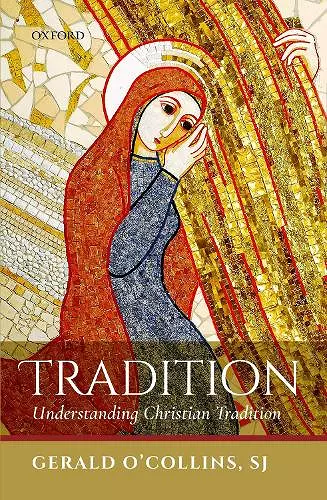Tradition
Understanding Christian Tradition
Format:Hardback
Publisher:Oxford University Press
Published:8th Nov '18
Currently unavailable, and unfortunately no date known when it will be back

A 1963 report on tradition from the Faith and Order Commission of the World Council of Churches signalled a substantial convergence between the churches over Christian tradition and its relationship to Scripture. However, since the 1960s theologians have regularly ignored the theme of tradition. The few who have discussed this theme have not used the help provided by some sociologists towards understanding the role of tradition in human and religious life: for instance, as being all-pervasive and as shaping the identity of various societies and groups. The process and presence of Christian tradition embrace baptism and other sacraments, Bible, creeds and other doctrines, art, architecture, hymns, pilgrimages, literature, the celebration of Christmas, Easter and other feasts, and much else besides. Particular traditions can call for scrutiny and reform. Tradition: Understanding Christian Tradition proposes various criteria (e.g. the message of the Scriptures and spiritual experience) for discerning and evaluating specific traditions. Through the power of the Holy Spirit, the risen Christ himself is the central Tradition (upper case) at the heart of all Christian traditions. The Spirit remains the primary bearer of the Church's tradition; the secondary agents of tradition include not only ordained ministers but also all the baptized faithful. In the history of Christianity, tradition has interpreted and actualized the Scriptures, but has also been interpreted and challenged by them. An appendix explains the insights coming from specialists in the study of collective memory; their work also sheds light on the workings of Christian tradition.
O'Collins places his work in the centre ground of Christian theological education to achieve the widest usefulness... His argument is steady, unswerving and convincing. His chosen tool, so to speak, is neither the sledgehammer nor the scalpel, but the trowel; with it he both digs and builds. The authorial voice is not intrusive; it serves the task and so serves the church. * Paul Avis, Durham University, Ecclesiology *
ISBN: 9780198830306
Dimensions: 202mm x 137mm x 15mm
Weight: 268g
160 pages